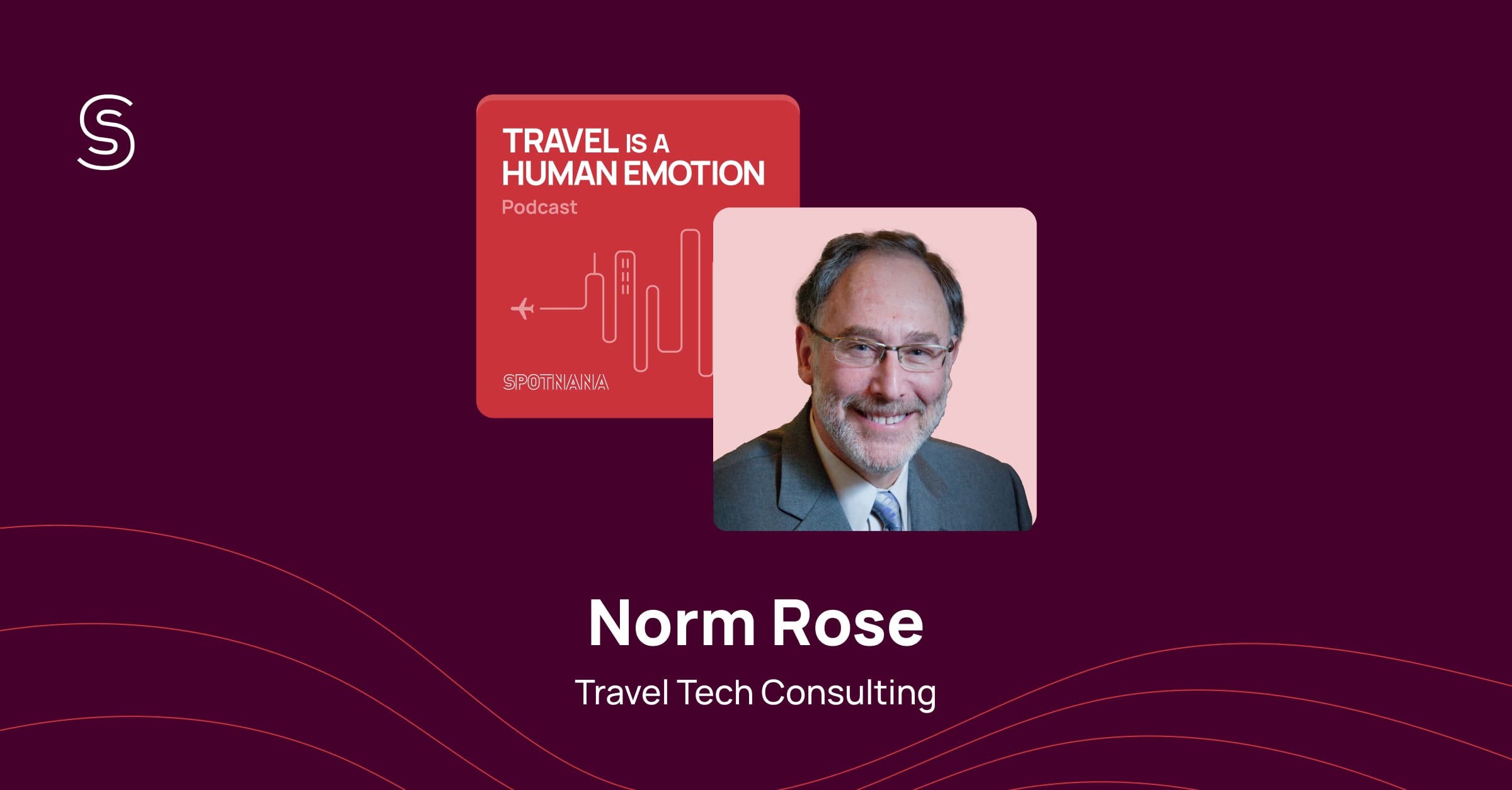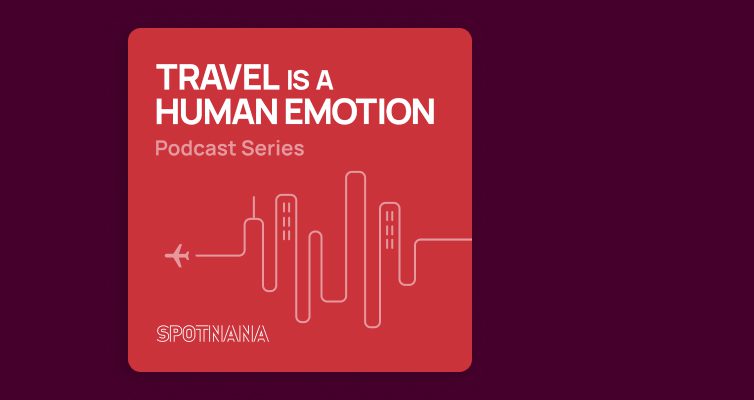Podcast: The Future of Corporate Travel with Norm Rose

As emerging technology continues to enhance experiences for travelers, adapting to change is crucial for travel companies to maintain their competitive advantage.
For the tenth episode of The Travel Is a Human Emotion Podcast, Spotnana VP of Marketing Justin Schuster spoke with industry veteran Norm Rose, President of Travel Tech Consulting, about how technology is transforming the corporate travel ecosystem.
Rose discussed the growth of NDC, the modern technologies reshaping the travel industry, and the importance of in-person connections driven by travel.
NDC adoption
The International Air Transport Association (IATA) first announced the New Distribution Capability (NDC) schema in 2012. The slow adoption of NDC in corporate travel has prevented countless opportunities for improvements to both airline merchandising and travel program optimization, according to Rose.
“If you are saying to your corporation [that] you are getting the lowest possible fare in the marketplace and you’re not enabling NDC, there may be content that is missing,” said Rose. “I’ve heard numerous stories from CEOs paying twice as much for business class on a trip, to constant feedback from travelers finding cheaper fares on the airline sites. It’s causing friction in the environment, but I think it also breaks down the basic role of the buyer, which is to make sure they get the best value fare for their customers.”
Rose believes the long-term benefits of NDC – including access to rich content, dynamic pricing, and personalized offers – will ultimately drive wider adoption across the industry. Companies that fail to embrace NDC risk falling behind as airline distribution continues to evolve.
“It’s amazing that no one’s reporting how much more they had to pay due to lack of NDC adoption, while they’re very anxious to report how much they’ve saved through negotiation,” said Rose. “It seems like most buyers should have had a vested interest in trying to get NDC to work.”
AI and emerging tech
Rose identified three emerging technologies that will reshape corporate travel in the coming years: AI, blockchain, and self-sovereign identity. AI agents, he suggested, will have the most immediate impact.
“[The wider technology world is] talking about autonomous AI agents; these are not your bots from yesterday,” said Rose. “These are intelligent bots that can actually make decisions and act on your behalf. And we’re going to see a flood of them. The funniest thing about this is every time, whether it’s Google or OpenAI or whoever, does a demonstration about how these bots would work, guess what they do?
“They make a travel reservation. Are they getting NDC? I don’t know, but the point is that travel [is an obvious use case].”
Self-sovereign identity has the potential to simplify data management for both travelers and travel providers, allowing travelers to specify how their personal travel and identity details are shared. Rose also believes blockchain has the capability to provide more cost-effective payment systems to travel technology companies.
He envisions a future in which AI-driven agents complete personalized bookings on behalf of travelers informed by data secured through self-sovereign identity credentials, all powered by decentralized blockchain protocols.
“We will have automated travel after all these years of self-booking, online booking, or whatever we want to call the current interface,” said Rose. “It will be dramatically different [from today], and I think those three pieces are the cornerstone.”
The human element
In his more than 30 years in a variety of roles across the travel industry, Rose has seen that the human element remains central to business travel, despite technological advances.
He notes that business travelers often develop strong emotional attachments to their travel preferences and experiences, even though their companies foot the bill. This emotional investment can make travel disruptions particularly stressful for business travelers compared to leisure travelers.
Rose reflected that he has seen how travel has transformed the world for the better over the course of his career in the travel industry.
“Travel, basically, has changed human society,” said Rose. “We sometimes have a very narrow view of human beings in this sense. Our presence on Earth has been just a very minor part of the evolution of the planet. It’s really just since 1960 that we’ve had jet travel, [and] you’re not taking four or five planes in order to get across the country…. It’s really a very eye opening experience to see how different cultures live in the world.”







